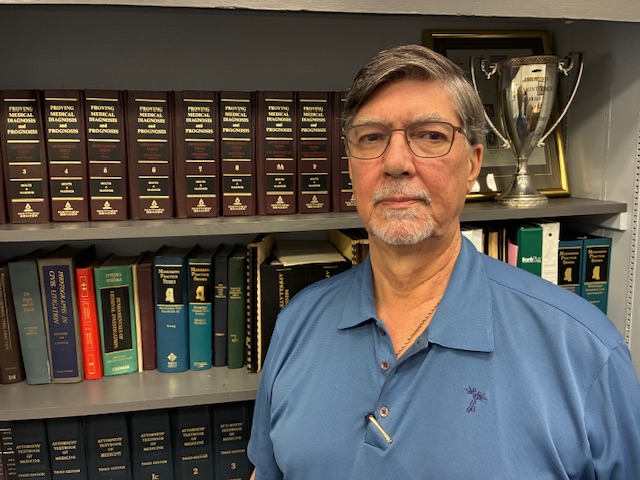Kentucky case shows gaps in refugee screening, lawmakers say
Published 5:45 pm Tuesday, December 15, 2015

- Lawmakers criticized for trade mission to Israel
WASHINGTON – Two months before debate over Syrian refugees heated up, a federal jury in Kentucky convicted an Iraqi man of entering the United States under an assumed identity.
Ali Al-Kadumi used a fake ID with another man’s name, Hussein Naji Selman, when he sought refuge in 1998, according to the U.S. Attorney for the Western District of Kentucky.
Lawyer David Mejia said his client fled Saddam Hussein’s regime and hasn’t run into any trouble since arriving in Louisville and going to work for Enterprise Rent-A-Car.
Al-Kadumi isn’t accused of having ties to extremist groups, and refugee screening has tightened since his arrival, according to the State Department and an immigration policy expert.
But lawmakers say the case illustrates a porous, dangerous system.
“This case is yet one more example of why we have to know who is coming into our country and why,” said Sen. Rand Paul, R-Kentucky, in a statement to CNHI’s newspapers.
Criticism over refugee screening has intensified since the Nov. 13 terrorist attacks in Paris. One of those involved in shootings that killed 130 people is said to have slipped into France while posing as a refugee fleeing the Syrian civil war.
Paul proposes suspending visas to Syrian refugees trying to enter the United States until background checks are toughened.
Rep. Lou Barletta, R-Pennsylvania, a member of the House Homeland Security Committee, said the Al-Kadumi case reveals a “flawed” process that poses “a grave security risk.”
Barletta is co-sponsoring a bill that suspends funding for the refugee program until the Department of Homeland Security reports to Congress on the activities of those admitted since 2001.
“How much more proof do we need before we admit that our screening process is broken?” he said.
The State Department would not comment on how Al-Kadumi slipped through its screening, but it noted that the United States tightened checks in 2010, when Iraqi refugees in Bowling Green, Kentucky, were discovered to be plotting to send money and arms to al-Qaida.
That’s not enough to appease at least 30 governors who want a closed border to Syrian refugees. The United States has accepted more than 2,200 refugees from that country since October 2010. President Obama has announced plans to accept 10,000 others.
Mejia said Al-Kadumi took on another identity for fear of being persecuted, if not killed.
According to an unsuccessful motion to overturn his conviction, Al-Kadumi, 45, was born in Kut, Iraq, and is a Shiite Muslim. He was conscripted to serve in the Iraqi Army from 1989 to 1991 but deserted when the United States invaded Kuwait. He later joined the uprising against Saddam.
He was arrested, beaten and threatened with torture. After his release, instead of rejoining the army, as required, he fled despite warnings that he would be rearrested and executed.
While working with a CIA-associated political party in northern Iraq, he purchased fake documents under the name of Hussein Naji Selman, Mejia said.
“He took a neutral name, like Jones or Brown, so no one could identify his religion or what region he’s from,” he said.
At a refugee camp in Damascus, Al-Kadumi filed for entry to the United States as a refugee, using the assumed name in interviews and on forms, according to the U.S. attorney. Mejia said he continued using the false name because he feared that translators could be from another sect and turn him in.
Al-Kadumi later used the false name in applying to be a legal permanent resident in the United States, then for naturalization as a U.S. citizen in 2005. Despite his claims that he acted under duress, a jury deliberated for only an hour before convicting him on Aug. 14.
He has been denaturalized and faces up to 10 years in jail.
Mejia downplayed concerns about Al-Kadumi’s ability to enter the United States, saying a greater concern is the widespread availability of military-grade weapons.
Susan Martin, former director of the U.S. Commission on Immigration Reform, said vetting refugees during the time that Al-Kadumi moved to Kentucky, before the Sept. 11, 2001 terrorist attacks, involved checking names against intelligence databases.
A more rigorous process now screens fingerprints, photos and DNA samples, said Martin, who is a professor at Georgetown University. Refugees also meet multiple interviewers who try to poke holes in their stories.
However, Barletta said the case points to a concern among Republicans about gaps in the screening process.
A report by the House Homeland Security Committee last month questioned the effectiveness of the process, noting a lack of information that limits the ability “to confirm that Syrian asylum-seekers are who they claim to be and to determine they do not have ties to terrorist groups.”
“We’ve had four national security experts, including two from the FBI and the Secretary of Homeland Security himself, testify that we have no system in place to properly screen these refugees coming from Syria,” Barletta said.
“We have no background on them, there’s no database to check against,” he said. “We can’t get information from (Syrian President Bashar) Assad, since we’re trying to overthrow him. There’s just not a way to verify these people are who they say they are.”
Kery Murakami is the Washington, D.C., reporter for CNHI’s newspapers and websites. Reach him at kmurakami@cnhi.com





